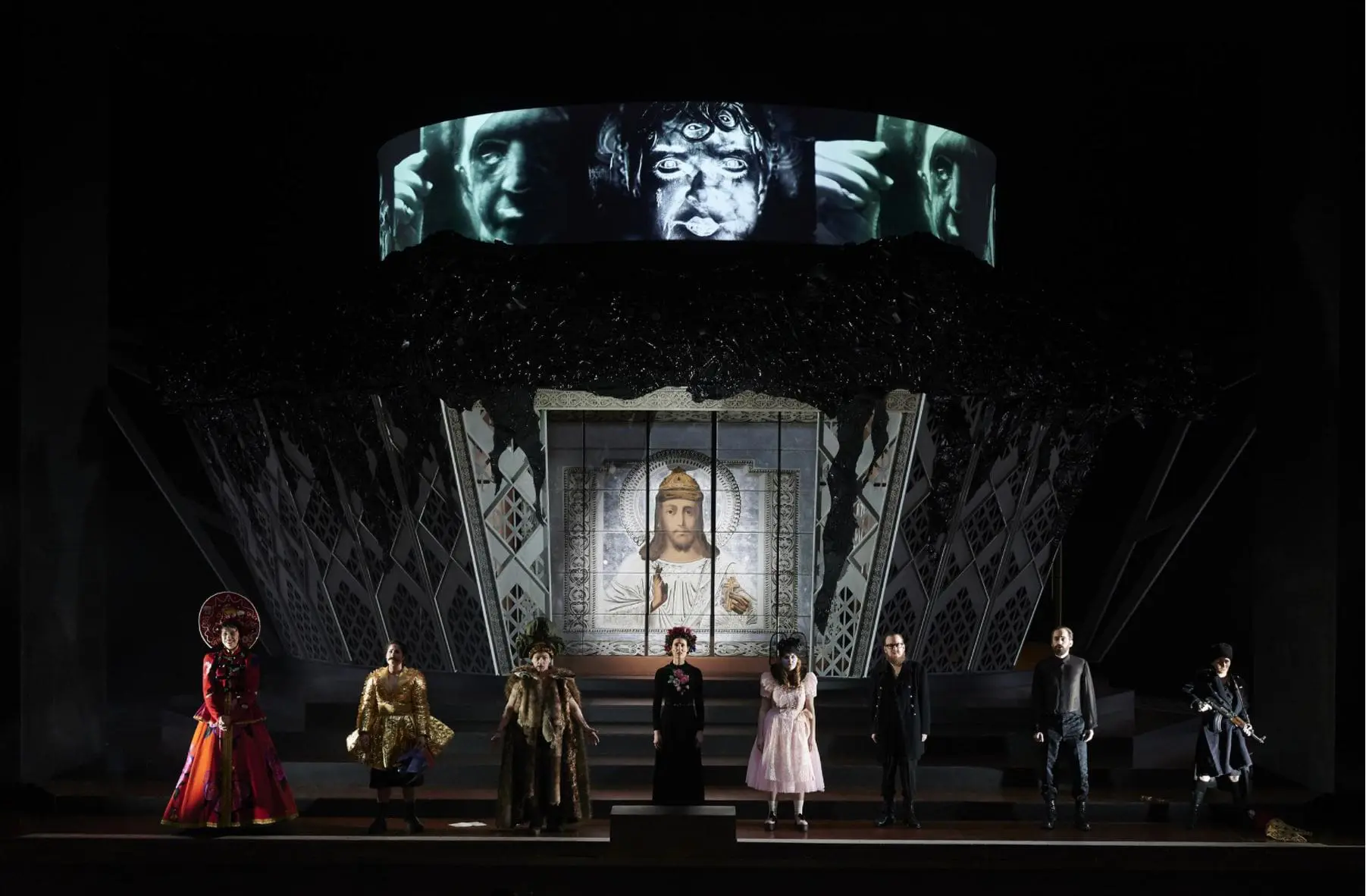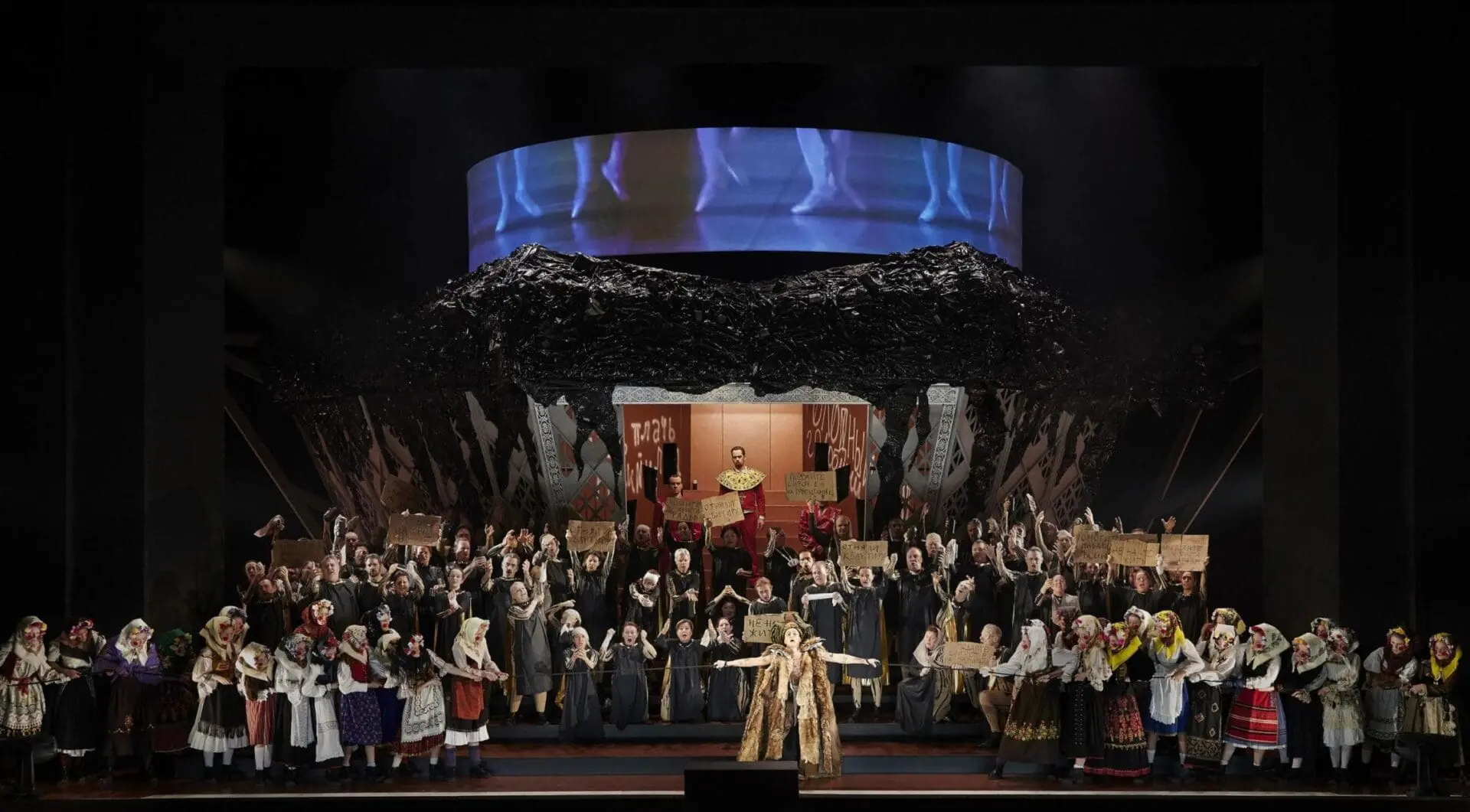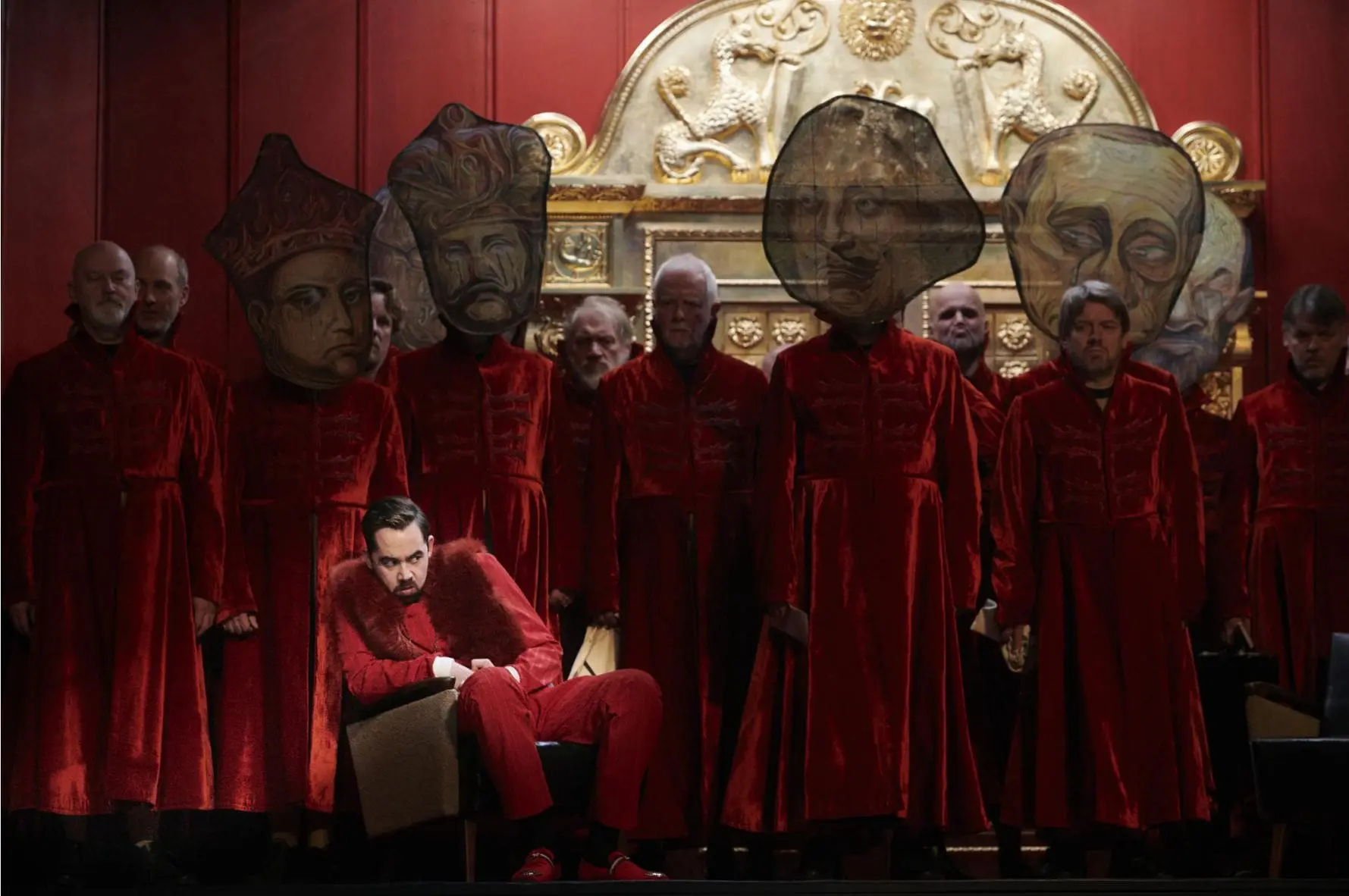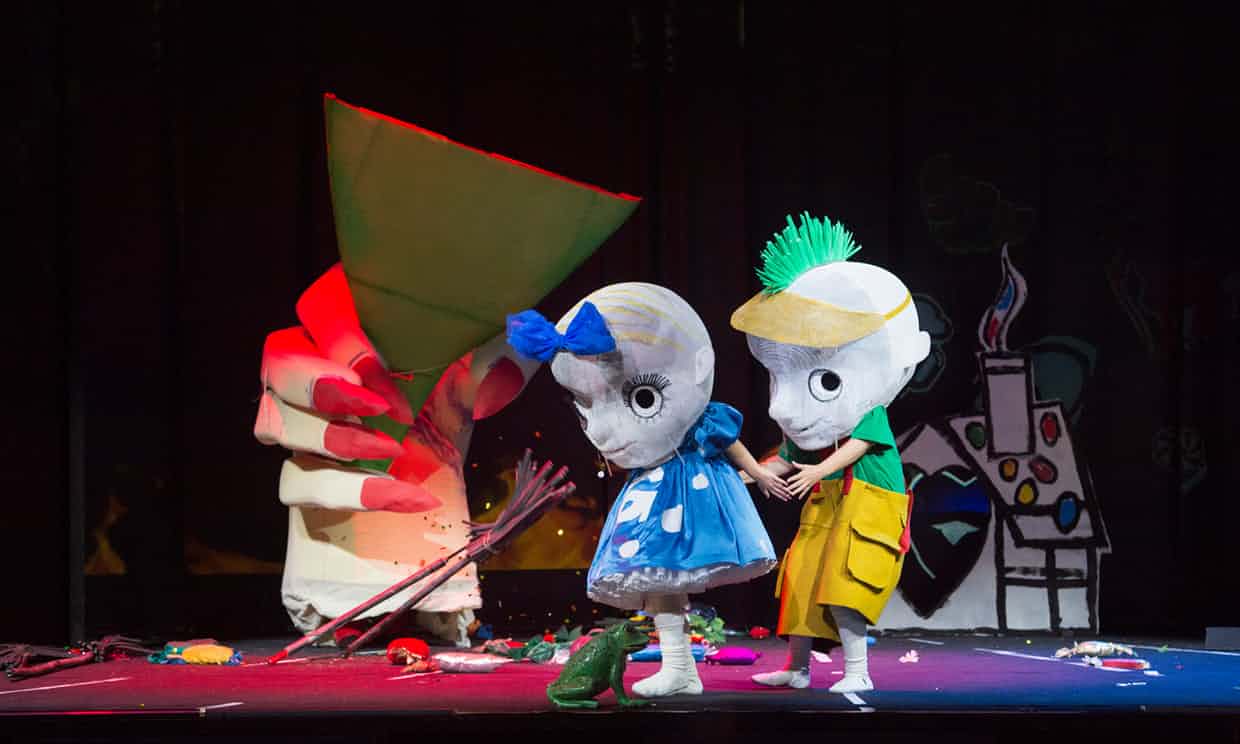People just can’t keep their hands off Mussorgsky’s Boris Godunov. The parade of revisers starts with the composer himself who left us two distinct versions, the 1869 original and an 1872 revision. A vocal score with further changes was published in 1874. Next in line is Rimsky-Korsakov who heavily revised the opera twice. His 1908 version with Ippolitov-Ivanov’s 1927 re-scoring of the St. Basil scene is still in use at the Bolshoi. No fewer than four others have re-orchestrated Modest Mussorgsky’s Boris Godunov including Shostakovich in 1940. Partially as a result of the opera’s convoluted textual history, conflations abound in print, on stage, and on recordings.
The most recent treatment of Boris Godunov as a malleable entity is Staatsoper Stuttgart’s 2020 production of Boris, a hybrid of Mussorgsky’s 1869 version and Sergej Newski’s Secondhand-Zeit (Secondhand-Time), streaming for free until 5 p.m. on May 28. Stuttgart’s production of Boris premiered on February 2, 2020, and was performed four more times before the pandemic shutdown wiped out its final two showings.
Commissioned by Staatsoper Stuttgart and completed in Venice on October 23, 2019, Newski’s 60-minute opera is based on six memoirs selected from Svetlana Alexievich’s eponymous 2013 novel, “Secondhand-Time – Living on the Ruins of Socialism.”
According to the Staatsoper Stuttgart’s online magazine, Alexievich’s novel “examines the effects of the collapse of the Soviet Union in 1991 on the biographies of the individual people who lived in it for decades.” As composer Newski noted, “The formal idea of Svetlana Alexievich’s book can be viewed as a continuation and expansion of Pushkin’s and Mussorgsky’s idea of giving the people a voice, one which at the end of Pushkin’s drama is left ‘speechless with horror.’”
Newski gives “the people a voice” by taking six minor characters in the Mussorgsky and morphing them into the main protagonists of Secondhand-Zeit. So, Fyodor is also the Activist; Xenia is also the Refugee; the Nurse is also the Mother of a Suicide; Grigori is also the Jewish Partisan who is further depicted as a child and an old man; the Hostess is also the Wife of the Collaborator; and the Holy Fool is also the Homeless Man.
Yet, with the Stuttgart production opting to intersperse Secondhand-Zeit’s Prologue, six Intermezzos, and Finale at precise points in the Mussorgsky—something Newski’s score was purposely designed to do—the narrative arc of Boris Godunov was repeatedly interrupted and halted by the individual narratives of the Secondhand-Zeit characters who, incidentally, also melded time by interacting with whichever Boris Godunov characters were on stage. As an example of that, the Partisan lurked about during the Cell scene with Pimen.
Not only are the Mussorgsky and the Newski worlds apart dramatically, and linguistically—the former in Russian, the latter mostly in German—but musically, too, and jarringly so in a refreshingly exciting way. Newski’s complex and intricate score sounded rather neo-Expressionist with his use of Sprechstimme, angular vocal lines, microtones, contemporary instrumental techniques and an array of percussion instruments. Newski also tailored motifs to transition between Mussorgsky’s score and his. For example, he had the clarinet start Intermezzo III with the opening notes of the Terem scene.
The in-house cast was led by Adam Palka in the title role. Palka sang with a full, round sound, nuanced phrasing and clear enunciation of the text. He has the potential to be a tremendous Boris one day. Palka’s Boris first appeared clad in a gaudy gold bodysuit with matching face paint. Alas, there was no Monomakh’s Cap during the Coronation scene, nor the traditional, spectacular death tumble from his throne.
Goran Jurić was a stentorian Pimen and Elmar Gilbertsson was a decent Grigori. Pawel Konik’s Shchelkalov had a slight lisp. Stine Marie Fischer was a colourful Hostess. Friedemann Röhlig lacked the vocal heft for Varlaam, but had antics galore during the silly Kazan song. Canadian tenor Charles Sy was a goofy Misail, and a suitably apprehensive Boyar-in-Residence who didn’t follow Mussorgsky’s stage direction to “whisper” in Boris’s ear. Maria Theresa Ullrich was an introspective Nurse and Mother. Alexandra Urquiola was an uber-naïve Fyodor and an intense Activist while Carina Schmieger was a sympathetic Xenia and Refugee. Matthias Klink cut a cunning Shuisky while Petr Nekoranec was a plangent Holy Fool and Homeless Man.
The Staatsoper Stuttgart Chorus and Children’s Chorus were well trained under Manuel Pujol. The Staatsorchester Stuttgart was excellent and conductor Titus Engel, to whom Newski dedicated his score, proved himself a polished accompanist.
Until 5G View comes to livestreams, opera fans will have to content themselves with watching exactly what the video director wants them to watch. However, with Paul-Georg Dittrich’s direction, Joki Tewes’s and Jana Findeklee’s set, Pia Dederichs’s and Lena Schmid’s hodgepodge of fanciful costumes, as well as Vincent Stefan’s video and Tobias Dusche’s live camera, there was no lack of visual stimulation in this Regietheater production.
The streaming link and more information for Staatsoper Stuttgart’s Boris Godunov/Secondhand-Zeit can be found here: https://www.staatsoper-stuttgart.de/spielplan/oper-trotz-corona/.

















